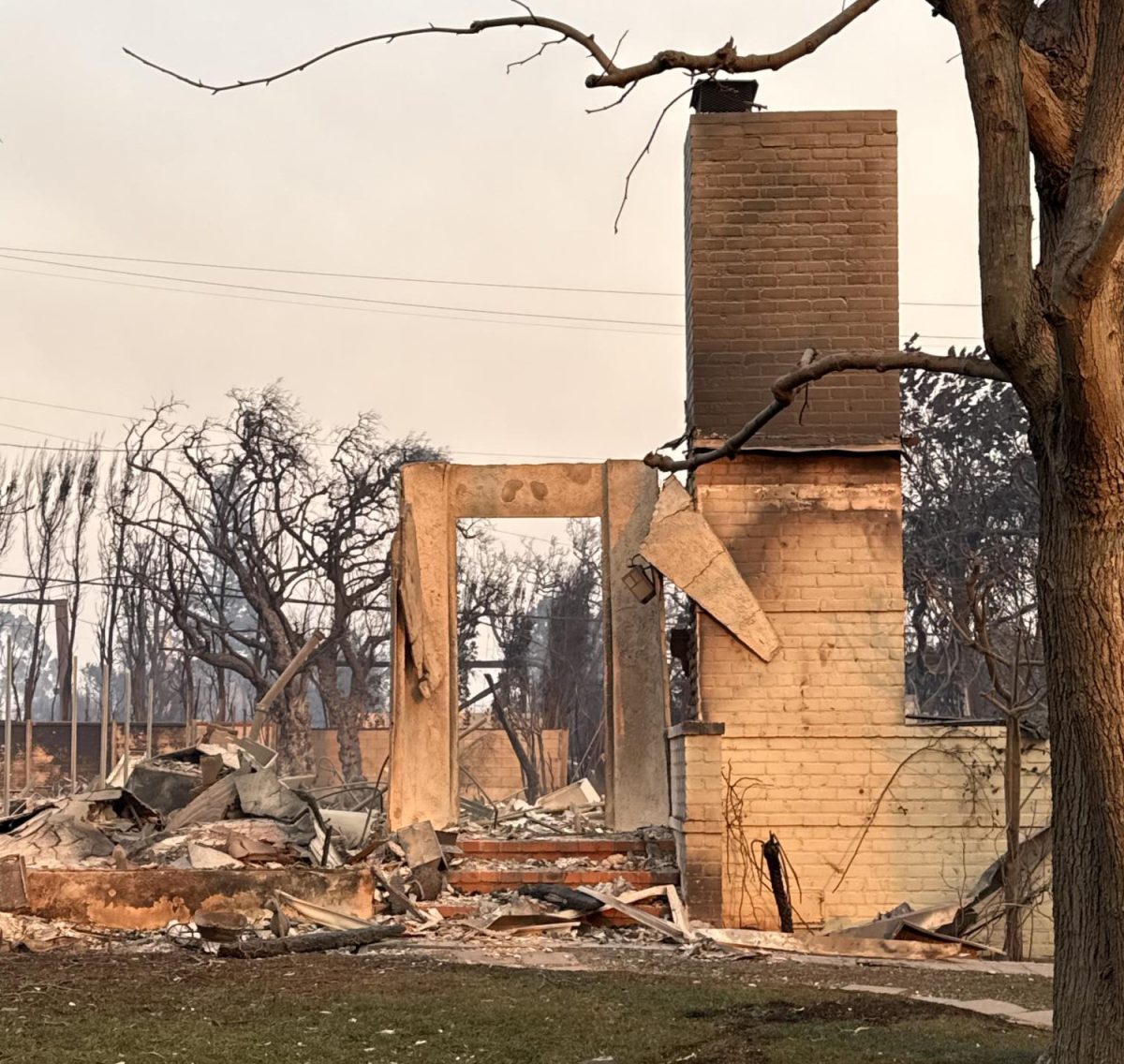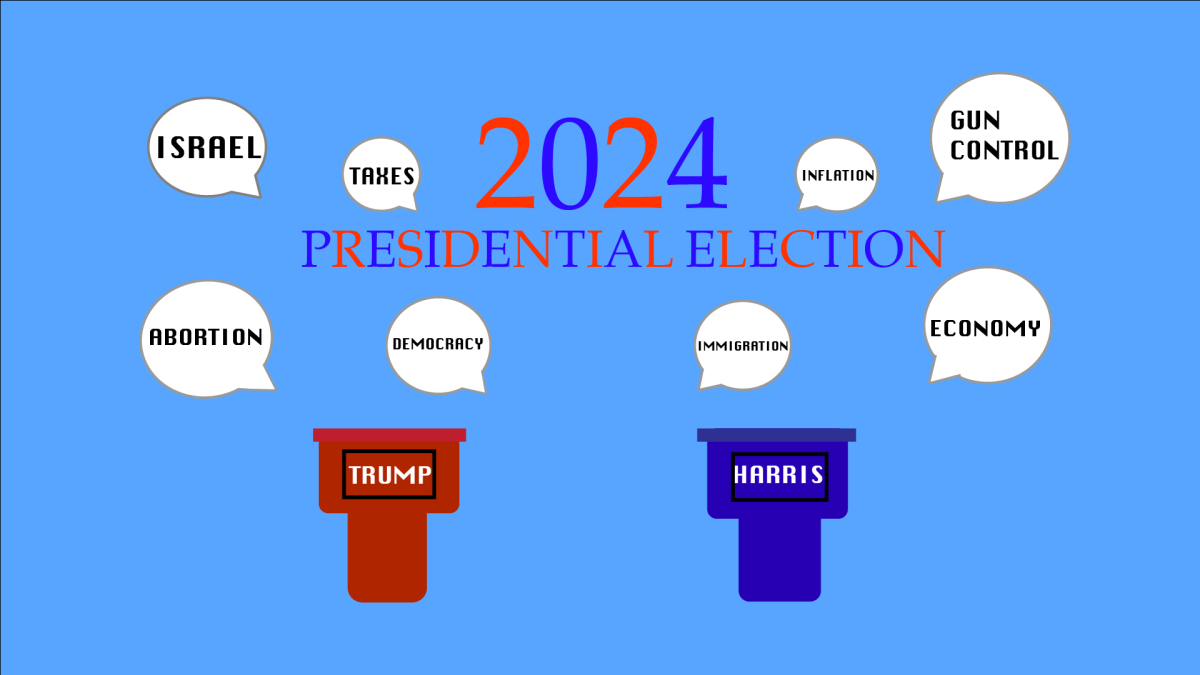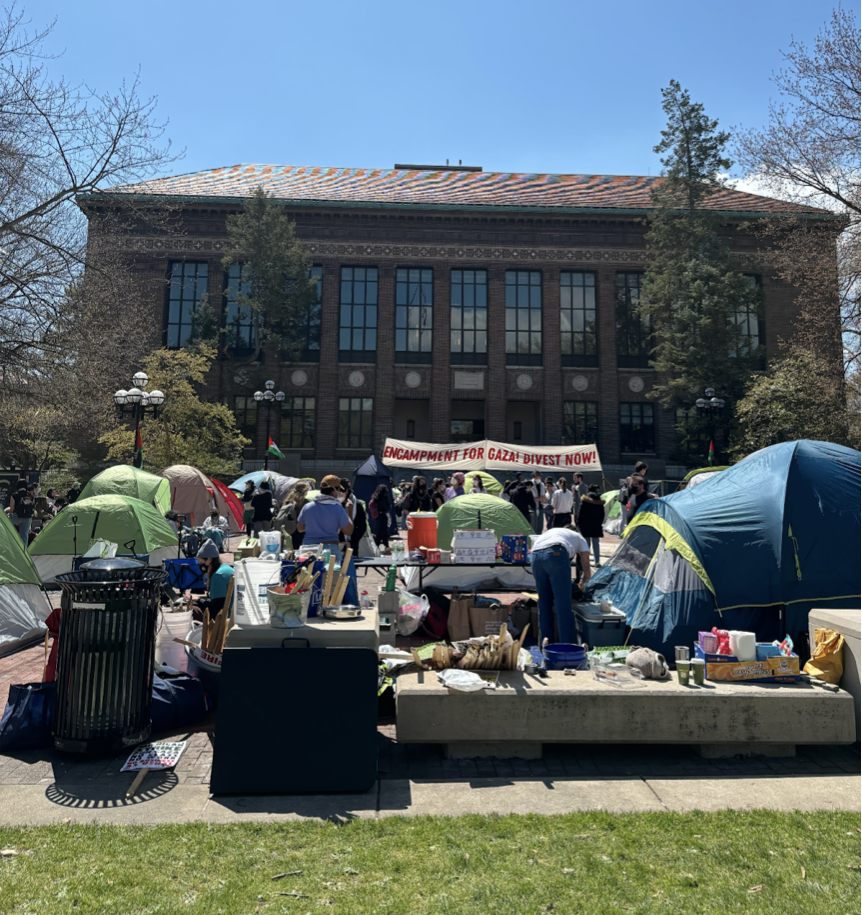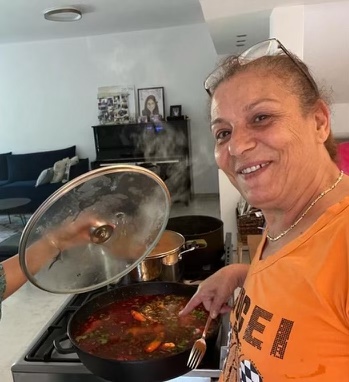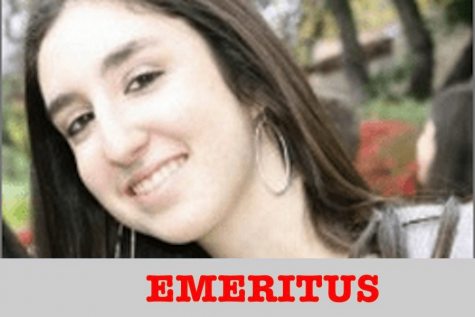A 16-year-old girl’s hand, painted in the colors of the Egyptian flag with the Arabic word “enough,” can go a long way on Facebook.
“That picture has spread everywhere,” said Reem Motaweh, an Egyptian-American teen in Los Angeles who created a Facebook group during the recent protests there. “A bunch of people made it their profile picture. People I didn’t even know.”
Reem, whose group is called “Letters to the Media,” wasn’t alone. Many other teens from the youth group she belongs to at the Islamic Center of Southern California in Koreatown also became active during the protests, which ran from Jan. 25 to Feb. 11 and led to the ouster of Egypt’s 30-year president, Hosni Mubarak.
The Los Angeles teens attended rallies, formed Facebook groups, or posted news updates on their profiles.
“I wanted to get everyone talking about it,” said youth group president Hassaan Shahawy, also 16, who created “Call for Peace in Egypt,” another Facebook group. “A crucial step was getting the conflict out there early and making sure people knew about it in time to respond.”
Before last month, Reem and Hassaan had followed current events but were never directly involved with Egyptian politics. Reem’s parents migrated to America as young adults, and Hassaan’s grandfather was forced out of Egypt during its 1952 revolution.
But the day the protests began, Reem, who attends Capistrano Valley High School, started Letters to the Media with her older sister, encouraging teens to send messages to American news sources.
“On Facebook we copied and pasted a letter to the New York Times and we got almost 500 people to do it,” Reem said, adding that they deleted the group a few days later, once the American media caught up with the Arab coverage.
Hassaan, who has family in Egypt, urged people on his Facebook group to leave messages at the U.S. State Department. The group used the video postings of Tamer Shaaban, an Egyptian-American college student whose YouTube videos have earned around one million views (http://tinyurl.com/TamerShaaban).
Several times a day, Reem and Hassaan would update Facebook with live stream from Al Jazeera and articles from CNN. It kept him busy, because events developed so rapidly, Hassaan said, adding that he would check the news at school between classes and during lunch.
“I was pretty much on my phone checking every 10 minutes, refreshing CNN,” Hassaan said.
The youth group’s teens also attended protests at the Federal Building in Westwood and the Egyptian consulate on Wilshire Boulevard.
“People were so passionate, yelling ‘down with Hosni Mubarak,’” said Mona Ghannoum, an Egyptian-American freshman at Alverno High School.
Reem appeared on KTLA, KABC, and KCAL9, after being interviewed at the protests. Her friends now call her “Hollywood,” she said.
“Normally I’m pretty shy, but when they came up I didn’t mind at all,” Reem admitted. “I was completely excited, and I was ready to talk about it.”
Meanwhile, the youth group’s teens shared their enthusiasm with their classmates.
Khtija Khair, a junior at Bravo Medical Magnet High School who has family in Bangladesh, brought up the topic in class discussions, while Hassaan put up fliers with the words “Egyptian Revolution 2011” around campus with the State Department’s number, and made announcements to his school’s 400 students at its morning community forum meetings.
“People posted things like good job, thanks for helping out, and we’re all proud of you,” Hassaan said.
Reem, Hassaan and Mona worried about their families in Egypt when they didn’t hear from them. According to the Associative Press, on Feb. 17 the country’s Health Minister estimated 365 dead, with around 5,500 wounded (http://tinyurl.com/BPEgyptdeath).
But within days, the teens spoke to their relatives in “celebratory phone calls” when Mubarak resigned, and heard that they had joined the protests. Hassaan’s uncle has provided medical aid in Tahrir Square, and his cousins were involved in keeping order during the days of lawlessness.
“My cousin also was down in the streets with his friends,” Hassaan said. “Once the criminals were going around Cairo, they were in the streets going around with a baseball bat to make sure no one got mugged.”
But Hassaan said he couldn’t compare himself to the Egyptian youth.
“I didn’t consider myself part of the revolution,” he said. “I would like to, but I thought sitting here in Los Angeles doesn’t really count.”
Related: Student-organized picnic forges Muslim-Jewish friendships

